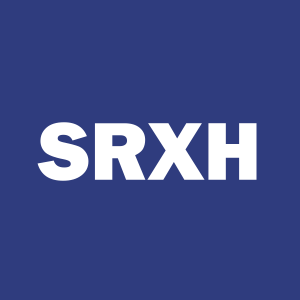SRx Health Gains Clearance for Up to 60-for-1 Reverse Stock Split
Rhea-AI Filing Summary
Item 5.07: On 23 Jul 2025, stockholders holding 17.1 M votes (51.5% of the 33.2 M outstanding) of SRx Health Solutions, Inc. (SRXH) delivered a written consent approving an amendment that empowers the Board to carry out a reverse stock split of the company’s common shares at any ratio between 15-for-1 and 60-for-1. The Board may implement the split at any time before 31 Mar 2026 and may choose the exact ratio and timing without further shareholder action.
Because the majority was obtained by written consent, no shareholder meeting is required and there were no opposing, abstaining, or broker non-votes. The filing discloses no financial results, transactions, or other corporate actions beyond the potential split.
Reverse splits are often used to boost per-share price and preserve exchange listings, but they can also reduce liquidity and sometimes precede additional capital actions. Implementation remains at the Board’s sole discretion.
Positive
- Board flexibility to choose optimal split ratio and timing up to 31 Mar 2026, enabling swift compliance with NYSE price requirements.
- Cost-efficient approval through written consent avoided expenses associated with convening a formal shareholder meeting.
Negative
- Potential market stigma: Reverse splits are often viewed as signals of weak share price performance and can trigger selling pressure.
- Liquidity risk: Shrinking share count may widen spreads and reduce trading volume, potentially increasing volatility.
Insights
TL;DR: Board gains authority for 15-60:1 reverse split; effect depends on execution and market reaction.
This authorization signals SRXH may be seeking to lift its share price to maintain NYSE American listing standards or improve marketability. Approval via written consent avoided the time and cost of a shareholder meeting and gives management flexibility until 31 Mar 2026. While a reverse split does not change market cap, it can reduce float, raise bid-ask spreads, and sometimes precedes equity raises—investors should monitor for subsequent filings that confirm ratio, timing, and any related capital plans.
TL;DR: Majority consented; no dissent recorded—corporate process clean but potential perception risk.
The company followed Delaware law in using written consent, achieving >50% support without convening a meeting. Granting the Board broad discretion (15-60:1) maximises operational agility but limits shareholder influence over final terms. Absence of dissent suggests shareholder alignment, yet reverse splits often carry a stigma of financial distress, which may pressure the stock. Governance risk is moderate; investors should evaluate Board communication when a specific ratio is chosen.








